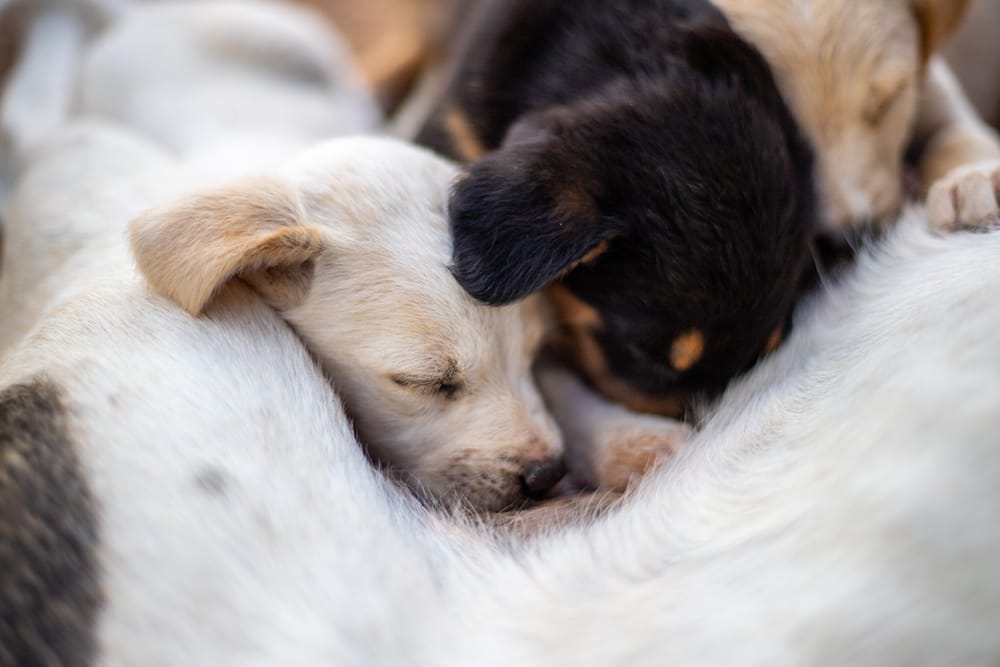Q: What is the importance of the weaning process in puppies?
A: The weaning process in puppies takes place at around three weeks of age when puppies start to develop sharp teeth, and suckling becomes uncomfortable for the bitch. The weaning process is a monumental change in a puppy’s life; they go from having their every need met (being constantly fed by the bitch) to being turned away once the weaning process commences.
This can make the puppies frustrated by having their constant food source removed from them and not having their needs automatically met. Yet, developing frustration tolerance is key for dogs. It is important to note that during the weaning process, an alternative food source is available for the puppies, so their frustration is marginally mitigated, and their health and wellbeing are in no way compromised. In this way, all they have to do is manage the frustration, not manage any additional health challenges.
The frustration experienced may lead to inappropriate outbursts of behaviour, which will be corrected by the bitch in an appropriate way, thus introducing communication and social cues to her puppies and associated appropriate responses to said communication. This type of social correction teaches them how to interact with other dogs in the future. Once the puppies have been corrected for inappropriate outbursts, they will learn how to communicate their needs correctly.
Similarly, after correction, they will need to find an alternative source of food and water. Problem-solving is an essential skill for dogs to develop and one they will carry with them for the rest of their lives. Breeders often practise communal feeding during the weaning process, which further encourages problem-solving as puppies have to learn how to gain access to that resource, e.g. by climbing into the bowl, getting there first etc.
[1] COAPE International. (2021). Man’s Best Friend. In COAPE C01: Unit 1 Course Notes. Pg. 8.
[2] Discussion – Verushka Pillay: Certified trainer and behaviorist, Thinking Pets and Canine Communications.
[3] Van Rooyen, C. (2021). Zoom Tutorial on Types and Breeds. (Accessed 13 July 2022).
[4] Discussion – Verushka Pillay: Certified trainer and behaviourist, Thinking Pets and Canine Communications.


